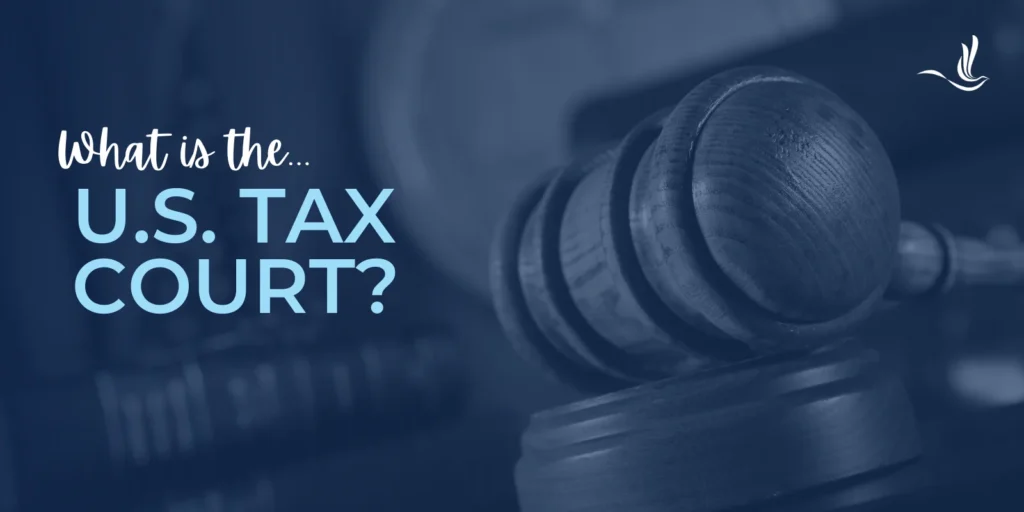
The U.S. tax system is one of the most complex in the world. That said, it can be intimidating for many taxpayers, especially when disagreements arise with the IRS over tax liabilities. In such situations, the United States Tax Court serves as a crucial legal institution that offers taxpayers a platform to contest IRS determinations before paying the disputed amounts. As a specialized federal court, the U.S. Tax Court provides a fair and impartial setting for resolving tax disputes, ensuring that taxpayers have access to justice and due process. Understanding its function, structure, and procedures is essential for anyone involved in tax disputes. Here’s an overview of the U.S. Tax Court, including its background, purpose, and process.
Historical Background
The U.S. Tax Court was initially established as the Board of Tax Appeals in 1924, following the Revenue Act of 1924. It was created to address the increasing number of tax disputes resulting from new federal tax laws. In 1942, it was renamed the Tax Court of the United States and later became the United States Tax Court in 1969 as an independent judicial body under Article I of the Constitution.
Structure and Function
The U.S. Tax Court consists of 19 judges appointed by the President and confirmed by the Senate for 15-year terms. The court’s headquarters are in Washington, D.C., but judges travel across the country to hear cases in various locations, making it more accessible to taxpayers.
Types of Cases
The Tax Court hears a variety of cases, including:
- Deficiency Cases: The most common type of case, where a taxpayer disputes an IRS assessment of additional tax owed.
- Collection Due Process (CDP) Cases: Involving challenges to IRS collection actions, such as liens or levies.
- Innocent Spouse Relief: Addressing requests for relief from joint tax liability for a spouse.
- Abatement of Interest and Penalties: Cases where taxpayers seek relief from interest or penalties assessed by the IRS.
- Employment Status: Cases involving the classification of workers as employees or independent contractors.
- Whistleblower Cases: Involving claims for rewards by individuals providing information leading to the detection of underpayments of tax.
Procedures and Process
Here is the typical process of the U.S. Tax Court.
- Filing a Petition: Taxpayers can file a petition with the Tax Court within 90 days after receiving a Notice of Deficiency from the IRS. The petition initiates the legal process and must clearly state the issues and facts in dispute.
- Pretrial Procedures: The court encourages settlement discussions between the parties. If a settlement is not reached, the case proceeds to trial.
- Trial: Trials are conducted by a single Tax Court judge and are less formal than typical federal court proceedings. Taxpayers may represent themselves or hire an attorney or tax professional.
- Decision: After the trial, the judge issues an opinion, which can be a regular or memorandum decision. Regular decisions address new or novel legal issues, while memorandum decisions deal with the application of existing law.
- Appeal: Tax Court decisions can be appealed to the U.S. Courts of Appeals, and in rare cases, to the U.S. Supreme Court.
Advantages of the U.S. Tax Court
One of the primary advantages is that taxpayers can dispute a tax deficiency without first paying the disputed amount. This is particularly beneficial for those who cannot afford to pay upfront. In addition, the judges of the Tax Court are specialists in tax law, providing a knowledgeable forum for complex tax issues. Finally, with trials held in various locations across the country, the Tax Court is accessible to taxpayers nationwide.
Tax Help for Those with Tax Disputes
The U.S. Tax Court plays a vital role in the American tax system, providing a specialized and impartial forum for resolving disputes between taxpayers and the IRS. By allowing taxpayers to contest assessments before payment and offering expertise in tax law, the Tax Court ensures fairness and due process in tax administration. If you have a tax issue, it may be best to consult a tax professional. Optima Tax Relief has over a decade of experience helping taxpayers get back on track with their tax debt.
If You Need Tax Help, Contact Us Today for a Free Consultation